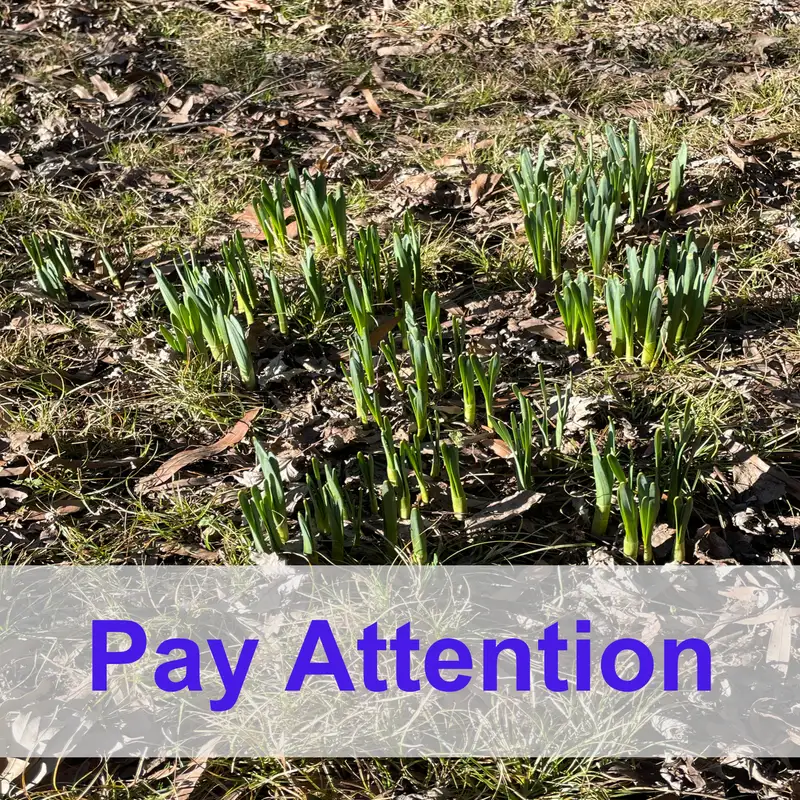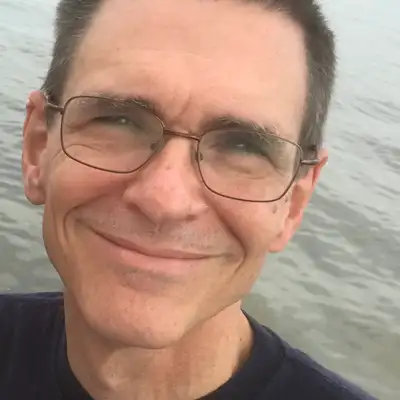
Paying Attention
Welcome to the Infinitely Precious podcast produced by Infinitely Precious LLC. Your host is James Henry. Remember, you are infinitely precious and unconditionally loved for the gift you already are.
James:Hello, beloved. It's me, James, and I've been pondering a question this week a little bit. A question raised by the apostle Paul in a letter he wrote in the first century to the Romans. Why do I do that's what I don't want to do. Why do I do the evil that I don't want to do?
James:Now he has some answers in their rather, their good complex theological rhetorical answers. For me this week, as I've been thinking about the times when I miss out on doing the good I intended to do, a lot of it seems to flow from the fact that I am not paying attention. And I mean that in the best maybe in the worst. I mean that, truly in the sense of being present in that moment. Oftentimes, when I just allow myself to slip into autopilot walking through life, without being attentive to the moments that I'm in, when I'm in that autopilot mode, I say whatever pops up.
James:I do whatever pops up. Whatever is the path of least resistance seems like the path that draws me in. That's what I would say draws me to that thing. So what is it that I can do about that in addition to or beyond the greatest thing, which is to rely on the grace, the love, the forgiveness, the openness of the divine? Is there something I can personally do to participate in, the moments when I find myself doing things I ought not to do or that I intended not to do?
James:And the answer is, yes. There is something I can do, and it's to be awake in the moment, to really practice, to really try, in the midst of everything else to be there, it does not mean it does not mean that I won't still do, maybe just as often, do the thing I don't intend to do. But somehow inside of me, I have noticed that when I am really present in the moment, when I'm paying attention to what I'm doing, what I'm saying, what I'm thinking, and I'm not just saying, whatever comes to mind or doing whatever seems most expedient in the moment. When I'm actually there, I am indeed less likely I'm less likely to do that thing that I don't want to do, that I wish I hadn't done. If I practice pausing in that moment, if I slow down just enough, if I pay attention to what's going on, I mean, I see it in everyday life in lots of different kinds of ways of paying attention.
James:I've been driving for a long time. I wanna say I've been driving about forty five years, give or take. More than forty, for sure. And driving from place to place, particularly long trips, have you ever noticed every once in a while that you'll get to a place on the trip and you won't realize exactly how you got there? You you will have been driving for that distance, but you can't name anything that you particularly saw, any signs, any places you passed.
James:You can't because you have slipped into autopilot. Your body and mind are paying attention to what's going on ahead of you at least to at at the lowest level, but you're thinking about something else or your mind's engaged somewhere else. You're not fully there. And that not being fully there takes, takes you out of the moment. And if you're not paying attention, that's, creates a scenario in which you're much more likely to trip up.
James:At least, that's what I think as I've been pondering the question, Paul asks all this week. Now for you, you may, you may see it another way. And that's why when I do these podcasts, I encourage you to to write me if you want to, infinitelypreciousllc@gmail.com. And let me know what you're thinking. If you disagree, if there's some way that I could sharpen my response or see it in a different fashion.
James:If that's something that you see, I encourage you to let me know, and I'll probably respond at a future, podcast to the thoughts that you shared. Because certainly, I'm always looking for better ways to be fully present, to really engage in this world in which I'm living. I'm realizing how important it is to be present, how much the world depends on my actually, focusing on the moments I find myself living in and through. And that paying attention actually makes a difference. I still make mistakes.
James:I still trip up. I still do the things that I don't want to do. And if I'm not paying attention, I say things that hurt other people's feelings or do things that, cause harm to another. Certainly, usually not with intention. But without being present, it's definitely without attention.
James:So my invitation to you this week would be to pay attention, to notice the things that spin you up. And when you start to feel yourself getting spun up, to step back. To step back. Say, oh, I see that happening. I see this spinning up happening.
James:I see where this is going. Is there another way that I can engage this moment that isn't about doing harm, about winning an argument, about showing that I've got it all together? Whatever it may be that's running in your head, is there is this thing that's rising up in me something I can avert? Stop by, changing my attitude, by thinking a different thought, by examining my conscience, by recognizing that oftentimes the thing that makes me most angry about the other is my projecting onto them my own stuff. Not even always them doing whatever they're doing.
James:In fact, it's probably not most of the time what they're doing. It's what I project of my own issues onto them. If I'm really paying attention, I might see what's coming up inside of me, what's rising up inside of me, and be able to to divert myself from doing something in that moment that I will come to regret. And that the person with whom I'm, spending time might come to regret. That, particularly if it's one on one or a group of friends or a group of even colleagues or, it could even be strangers.
James:There's no reason to ruin someone else's day just because I am not paying attention. It doesn't mean I won't do it. It's simply an invitation to try my best and for you to try your best to be fully present in the moment. Paying attention is being there. And if you pay attention enough, the things that rise up in you, you'll begin to see the patterns in it.
James:The patterns in the way that you are being, defensive, or you're trying to be, to to act out your sense of insecurity without realizing it. Your sense that you're not quite good enough. Something about shame or sadness or something that's triggered you from your past can emerge before you have a chance to think about it. Paying attention is not gonna make it go away, but it might allow you to pause long enough to catch what it is and maybe to stop long enough to think about ways that you might deal with it more directly. You don't have to be a certain way.
James:You can choose to go another way. That's what I'm saying when I'm saying pay attention. Because when we pay attention, we get the moment to make a free choice, to use our free will, to veer, in a direction other than the one that is hurtful to us and to the other. Those were the thoughts that came to me this week as I was thinking about that question of Paul. I kept revisiting it, for reasons it's not what I'm preaching about this week.
James:It's not, particularly, on my mind for any other reason than it just kept rising up. Maybe it was so I would have a topic to talk about in my, Friday podcast, or maybe it's because I need to be paying more attention to my life. It's probably more the latter and less the former that I need to be paying attention in my life how to best be alive because we are mortal, limited. We have a finite period of time in which to engage the world in which we live here, in this form anyway. And as such, we ought to make the best of it.
James:And paying attention is one of the ways of making the best in every moment. Why do I do the things that I don't want to do? Maybe some of it's my own propensity, but certainly, a fair portion of it is because I'm not paying attention. So pay attention, and I'm gonna do my best to do the same. But paying attention or not, remember always that you are infinitely precious and unconditionally loved for the gift you already are.
James:Until the next time.
